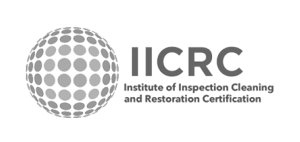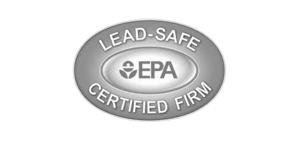If your home has experienced water damage, you may be wondering whether it’s safe to sleep there. Water damage can lead to potential health hazards and structural damage, so it’s important to take necessary precautions to ensure a safe living environment.
In this article, we’ll explore the risks associated with sleeping in a water-damaged home and provide tips on how to minimize exposure to potential hazards. We’ll also discuss the importance of seeking professional help for water damage restoration and temporary relocation options, should the need arise.
Key Takeaways:
- Water damage in the home can lead to potential health hazards and structural damage
- Air quality concerns can arise from stagnant water and mold growth
- Precautions such as minimizing exposure and seeking professional help can help mitigate the risks
- Temporary relocation can be an option for some individuals
Understanding Water Damage in the Home
Water damage in a home refers to any kind of destruction or harm that arises from water intrusion into building materials, surfaces, or systems. It can result from various causes, such as:
- Flooding
- Leaky pipes
- Roof Leaks
- Appliance malfunction
These sources of water damage can lead to a variety of consequences, including structural damage, mold growth, and health hazards.
Furthermore, the severity of water damage can be classified into one of the following categories:
| Category | Description |
|---|---|
| Category 1 | Refers to water damage from a clean water source with no contamination. Examples include broken pipes or overflowing sinks. |
| Category 2 | Refers to water damage from a source containing some level of contaminants that may cause illness if consumed. Examples include washing machine or dishwasher leaks. |
| Category 3 | Refers to water damage from a highly contaminated source that may cause serious illness or death. Examples include sewage backups or flooding from rivers or streams. |
In the event of water damage, it is essential to take prompt action to mitigate the damage and prevent further harm to your home and health.
Risks Associated with Sleeping in a Water-Damaged Home
When water damage occurs in your home, it can bring with it a host of health risks that you may not be aware of. Sleeping in a water-damaged home can expose you to a variety of hazards that can impact your respiratory system and overall health. The following are some of the potential risks associated with sleeping in a water-damaged home:
- Exposure to mold and mildew that can trigger allergies, respiratory issues, and infections
- Airborne toxins that can cause eye irritation, sneezing, coughing, and wheezing
- Dampness that can lead to the growth of bacteria and viruses, worsening respiratory infections, and creating a breeding ground for insects and vermin
Furthermore, sleeping in a damp environment can also impede your ability to get a good night’s sleep, leading to fatigue and other health issues.
To protect yourself from these risks, it’s crucial to take precautions when sleeping in a water-damaged environment. The following section will provide you with some essential tips to help minimize your exposure to potential health hazards.
Indoor Air Quality Concerns
Water damage in a home can have a severe impact on your indoor air quality. In particular, when moisture and stagnant water accumulate, they can become a breeding ground for mold and bacteria, leading to poor air quality that can harm your health. Breathing in contaminated air can cause respiratory problems, allergic reactions, and infections. As such, it is crucial to prioritize indoor air quality concerns when dealing with water damage in your home.
To ensure that your indoor air quality remains safe, take the following steps:
- Remove standing water: Water that has accumulated in your home should be removed as soon as possible to prevent further damage. Once the water is removed, you can start the drying process to reduce moisture and the risk of mold growth.
- Identify and remove damaged materials: Damaged materials, such as carpets, drywall, and insulation, should be removed to prevent mold growth. Mold can grow within 24 to 48 hours, so it is necessary to act fast to minimize damage.
- Clean and disinfect: All affected areas should be thoroughly cleaned and disinfected to remove mold spores, bacteria, and other contaminants.
- Use air purifiers: Air purifiers with HEPA filters can help capture airborne particles and improve indoor air quality by filtering out harmful contaminants.
By taking these precautions, you can help protect yourself and your family from the harmful effects of poor indoor air quality due to water damage. If you suspect that your home has water damage, it is essential to seek professional help for water damage restoration to prevent further harm to your living environment and ensure the safety of your home.
Precautions to Take when Sleeping in a Water-Damaged Home
When dealing with water damage in your home, taking necessary precautions is crucial. Ensuring a safe sleeping space is a top priority. Here are practical tips to minimize exposure to potential hazards:
- Use air purifiers: Investing in air purifiers can help remove airborne particles and improve indoor air quality.
- Keep the sleeping area well-ventilated: Proper ventilation promotes air circulation, which helps reduce the risk of mold growth.
- Use waterproof bedding: Using waterproof bedding can protect you from bacteria and other contaminants that may be lurking in damp environments.
- Seek professional help for water damage restoration: In case of severe water damage, it’s essential to seek professional help for water damage restoration to prevent further damage and health risks.
By taking these precautions, you can ensure that your sleeping space is safe, helping you reduce the risks associated with sleeping in a water-damaged home.
Seeking Professional Help for Water Damage Restoration
If your home has suffered water damage, it’s essential to seek professional assistance for water damage restoration. While it may be tempting to take care of the repair work yourself, attempting to do so without the necessary expertise and equipment can result in further damage to your home and potential health hazards.
Professional restoration companies have the expertise and equipment required to mitigate damage and ensure a safe living environment. A reputable restoration company will conduct an assessment of the extent of the damage and develop a comprehensive plan to restore your home. They use specialized equipment, such as fans and dehumidifiers, to remove excess moisture and prevent mold growth, and they will sanitize and deodorize affected areas to minimize health risks.
When selecting a restoration company, consider their experience, certification, and reputation in the industry. Choose a company that is licensed, insured, and certified by relevant bodies in your state. A company that specializes in water damage restoration is also preferable, as they will have the necessary experience and knowledge to restore your home effectively.
Remember, the faster you seek professional help for water damage restoration, the more likely it is that your home can be saved and safe to live in once again.
Temporary Relocation Options
If your home has suffered water damage, a temporary relocation might be the best option for you. This decision can minimize the risk of health issues and ensure an efficient restoration process. Here are some temporary relocation options:
| Option | Description |
|---|---|
| Stay with Family or Friends | If you have family or friends living nearby, consider asking for their help. Staying with them can save you money and keep you close to your loved ones during a stressful time. |
| Rent a Temporary Residence | If you have the financial means, consider renting a temporary residence. This option can provide you with a comfortable living space while your home is being restored. You can choose from various types of temporary housing such as apartments, hotels, or extended stay options. |
| Seek Assistance from Local Authorities | If you are in need of immediate housing and have limited financial resources, consider seeking assistance from local authorities. Depending on where you live, there may be organizations that provide aid or temporary housing to those affected by natural disasters or emergencies. |
Whatever option you choose, ensure that you prioritize your health and safety during the restoration process. It is better to take the necessary steps to protect yourself and your family than to rush back into a potentially hazardous living situation.
Conclusion
Water damage in a home can pose serious health hazards, particularly when it comes to your sleep. Sleeping in a water-damaged home can lead to respiratory issues, allergies, infections, and other health problems. To protect yourself and your loved ones, it’s essential to take precautions and seek professional help for water damage restoration.
Remember to prioritize your health and safety when dealing with a water-damaged living environment. This includes keeping the sleeping area well-ventilated, using air purifiers, and seeking professional assistance for restoration. If necessary, consider relocating temporarily to minimize health risks and facilitate the restoration process. By taking these steps, you can rest easy knowing that you are doing everything possible to ensure a safe and healthy living environment.
FAQ
Is it safe to sleep in a water-damaged home?
No, sleeping in a water-damaged home can pose various risks to your health and safety. Water damage often leads to the growth of mold, which can cause respiratory issues, allergies, and infections. It is important to take precautions and seek professional help for water damage restoration.
What constitutes water damage in a home?
Water damage can result from various causes, such as flooding, leaky pipes, or roof leaks. It refers to any form of damage caused by the intrusion or accumulation of water in a property. Common consequences of water damage include structural damage, mold growth, and health hazards.
What are the risks associated with sleeping in a water-damaged home?
Sleeping in a water-damaged home can expose you to potential health hazards. The presence of mold, mildew, and other contaminants in water-damaged environments can lead to respiratory issues, allergies, and infections. It is essential to address the water damage and take necessary precautions.
How does water damage affect indoor air quality?
Water damage can significantly impact indoor air quality. The moisture and stagnant water in water-damaged areas create an ideal breeding ground for mold and bacteria. Breathing in contaminated air can result in various symptoms and health effects. Ensuring proper ventilation and addressing water damage promptly is crucial.
What precautions should I take when sleeping in a water-damaged home?
When sleeping in a water-damaged home, it is important to take precautions to minimize exposure to potential hazards. Some measures include using air purifiers, keeping the sleeping area well-ventilated, and seeking professional help for water damage restoration. These steps can help mitigate the risks associated with water damage.
Why is it important to seek professional help for water damage restoration?
Seeking professional assistance for water damage restoration is essential for ensuring a safe living environment. Professionals possess the expertise and equipment necessary to effectively mitigate the damage and address potential health hazards. It is advisable to select reputable restoration companies to handle the restoration process.
What are the temporary relocation options if my home is water-damaged?
If your home is water-damaged, it may be advisable to consider temporary relocation to minimize health risks and facilitate a thorough restoration process. You can explore options such as staying with family or friends, renting a temporary residence, or seeking assistance from local authorities to find suitable accommodation.
What is the conclusion regarding sleeping in a water-damaged home?
In conclusion, sleeping in a water-damaged home can pose significant risks to your health. It is important to prioritize your safety by taking precautions, such as seeking professional help for water damage restoration. Addressing water damage promptly and ensuring a safe living environment should be a priority.







